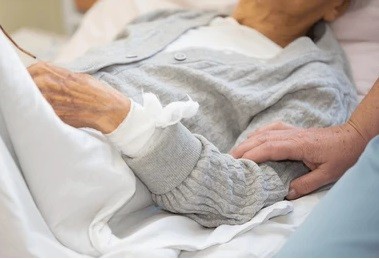01/02/2024
01/02/2024

KUWAIT CITY, Feb 1: In a significant update, Dr. Abdullah Al-Sanad, Director of the Health Communication Center and spokesperson for the Ministry of Health, unveiled a comprehensive initiative involving more than 4,461 home visits and medical services tailored for the "bedridden" category. Dr. Al-Sanad, in a media message broadcast through the Ministry of Health's social media platforms, outlined the commitment to providing 40 to 60 home visits per week since the inception of the service.
The bedridden category primarily includes patients who, for medical reasons, are confined to bed, hindering their ability to walk or lead a normal life. This demographic often comprises the elderly, post-operative patients, individuals who have undergone surgical procedures, people with disabilities, accident victims, those with various injuries, post-stroke patients, and individuals undergoing rehabilitation and physical therapy.
Dr. Al-Sanad highlighted the diligent efforts of medical emergency departments across public hospitals, detailing their operational mechanisms in handling approximately 180,000 cases throughout January. These cases were distributed across eight departments in prominent hospitals, including "Jaber," "Mubarak Al-Kabeer," "Al-Amiri," "Al-Sabah," "Al-Farwaniyah," "Al-Jahra," "Al-Adan," and "Sabah Al-Ahmad City Emergency Center."
Emphasizing the consistency of emergency cases, Dr. Al-Sanad noted that the figures observed in January align with the rest of the months throughout the year. Notably, 15% of the emergency cases in January exhibited respiratory symptoms related to seasonal influenza and other winter diseases, a pattern deemed normal within annual rates.
Providing insights into the medical emergency infrastructure, Dr. Al-Sanad detailed the operational statistics of the Al-Mutlaa Residential City Ambulance Center, which commenced operations on November 9. Since its inception, the center has efficiently handled around 100 cases, primarily involving road accidents, falls from heights, and fainting incidents, in addition to receiving over 70 cases from Al-Mutlaa Health Center No. 1 in the N11 suburb during the first eight working days.
As part of the ongoing expansion of healthcare facilities, Dr. Al-Sanad announced the imminent reception of the second Al-Mutlaa Health Center in the N10 suburb. Concurrent efforts are underway to commence operations at the new Abdali Health Center in the coming days.
To enhance visitor facilities, Dr. Al-Sanad revealed a noteworthy increase in parking capacity at Sheikh Jaber Al-Ahmad Hospital with the introduction of the second phase of parking. The new phase, serving Gate No. 4 (main entrance) and Gate No. 5 (visitors entrance), offers a capacity of up to 1,230 parking spaces. With coordinated efforts from the Engineering Affairs, Projects, and Cooperation Sector, and in collaboration with the health zone administration, the overall parking capacity at the hospital is set to reach 3,771 parking spaces. This comes after the successful launch of the first phase parking area and the upcoming third phase area, catering to different entrances and offering a total of around 5,000 parking spaces.
Dr. Al-Sanad concluded by addressing a workshop organized by the Health Planning and Development Department in the Ministry of Health. The workshop witnessed the participation of international experts and approximately 75 leaders from the Ministry, fostering discussions on strategic health planning and development initiatives.


